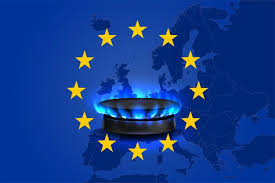Meaningful reform in the European Union has historically taken a crisis, and this winter seems ripe for energy policy. As with the euro crisis a decade ago, though, a quick political compromise could risk leaving the job half done.
The EU’s energy ministers held an emergency meeting Friday to agree ways to calm the storm of gas shortages, nuclear outages and drought hitting European energy markets. The ministers asked the European Commission in Brussels to draft a host of emergency measures for next week.
The benchmark price for the region’s swing fuel—liquefied natural gas—has fallen this month in response to proposals for coordinated action, but remains almost four times its level a year ago and eight times the U.S. equivalent. This and the knock-on impact on power prices are prompting businesses to shutter production and citizens to protest in the street.
There remains considerable disagreement among politicians in different countries about how best to address what is a heartland issue. While the pressure should help reach some kind of deal, it also raises the risk of missteps.
The EU in May proposed plans to reduce its reliance on Russian fuel, but these will take a few years to really deliver. Something needs to be done now to reduce electricity prices and improve the certainty of supply.
On Wednesday, Brussels outlined its starting point: reduce peak power demand; cap the wholesale price of low-marginal-cost power sources and Russian gas; create a windfall tax on oil and gas producers; and offer energy companies state guarantees to help meet margin calls on power trades. Energy ministers broadly backed the plan Friday, but without the detail that in energy markets often makes all the difference.
Capping the gas price remains highly contentious. Debate centers on whether to cap only Russian gas, all pipeline gas or all imports including LNG from producers further afield, such as the U.S. Some EU countries want to go even further and immediately reform the structure of power markets to sever the link between gas and power prices.
Power-market reform is likely necessary in the long run, but embarking on such a complex task to fix this winter’s crunch is risky. The EU’s firefighting response to the eurozone crisis over a decade ago, which failed to deliver a true banking union, is an awkward precedent.

 Iran Energy News Oil, Gas, Petrochemical and Energy Field Specialized Channel
Iran Energy News Oil, Gas, Petrochemical and Energy Field Specialized Channel



